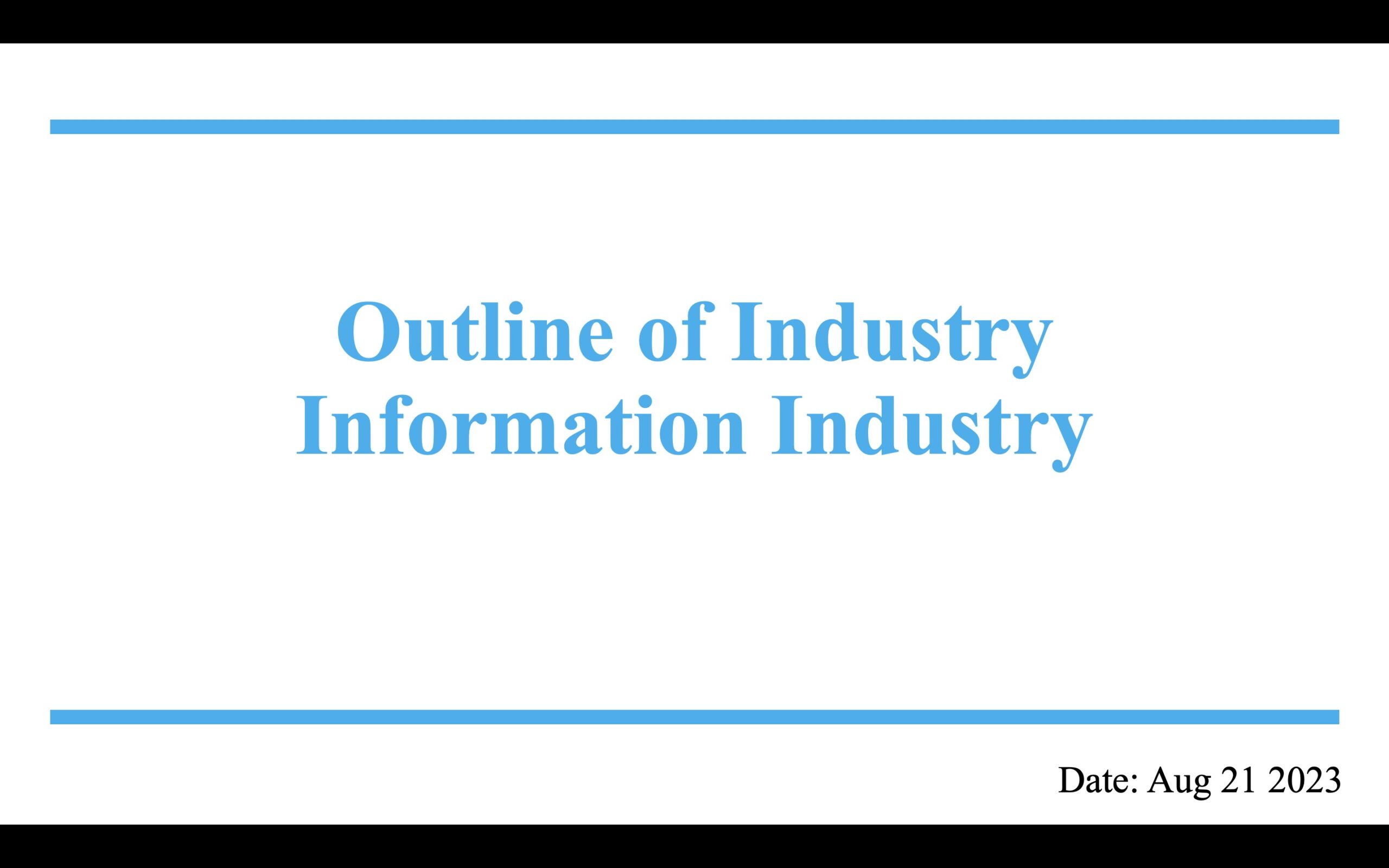The information industry is a rapidly growing sector that encompasses a wide range of activities, from the production and dissemination of news and entertainment to the development of new technologies and the creation of digital content. The industry is driven by advances in technology, changes in consumer behavior, and the increasing importance of information in all aspects of life and business. In this essay, we will explore the history of the information industry, its current state, and its future prospects.
The history of the information industry dates back to the early days of printing and the development of the newspaper, but it was not until the advent of the internet and the digital revolution that the industry truly began to take shape. The introduction of new technologies, such as the personal computer, the World Wide Web, and mobile devices, transformed the way that people access, create, and share information, and created new opportunities for businesses and entrepreneurs.
Today, the information industry is a dynamic and rapidly evolving sector, driven by changes in consumer behavior, technological advancements, and economic trends. The industry encompasses a wide range of activities, including traditional media, such as newspapers and television, as well as new forms of digital media, such as blogs, podcasts, and online video. The industry is characterized by a number of trends and challenges, including the rise of social media and citizen journalism, the increasing importance of data and analytics, and the impact of new technologies, such as artificial intelligence and the internet of things.
The current state of the information industry is shaped by a number of factors, including the rise of new technologies, changing consumer behavior, and the increasing importance of data and analytics. The rise of social media and citizen journalism has challenged traditional media companies, and has created new opportunities for businesses and entrepreneurs. At the same time, the increasing importance of data and analytics has led to the growth of big data and data science, and has created new opportunities for businesses to harness the power of data to drive growth and improve decision-making. The impact of new technologies, such as artificial intelligence and the internet of things, is also shaping the industry, and is likely to play an increasingly important role in the future.
The future of the information industry is uncertain, with a range of potential outcomes depending on a number of factors, including technological advancements, changes in consumer behavior, and the impact of economic trends. On the one hand, there is likely to be continued growth in the demand for information and digital content, driven by the increasing importance of technology in all aspects of life and business. On the other hand, there may be increased pressure to reduce costs and improve efficiency, driven by economic and technological factors. In addition, the industry is likely to face increased competition from new entrants, such as tech startups and alternative media companies, and the rise of new technologies, such as artificial intelligence and blockchain.
In conclusion, the information industry is a rapidly growing sector that plays a crucial role in shaping the way that people access, create, and share information. The industry has undergone significant changes over the years, adapting to new technologies and changing consumer preferences. The current state of the industry is shaped by a number of trends and factors, including the rise of social media and citizen journalism, the increasing importance of data and analytics, and the impact of new technologies, such as artificial intelligence and the internet of things. The future of the information industry is uncertain, with a range of potential outcomes depending on technological advancements, changes in consumer behavior, and economic trends. However, the fundamental importance of the information industry in shaping our understanding of the world and enabling innovation and progress remains unchanged, and will continue to be essential in the years to come.



Comment